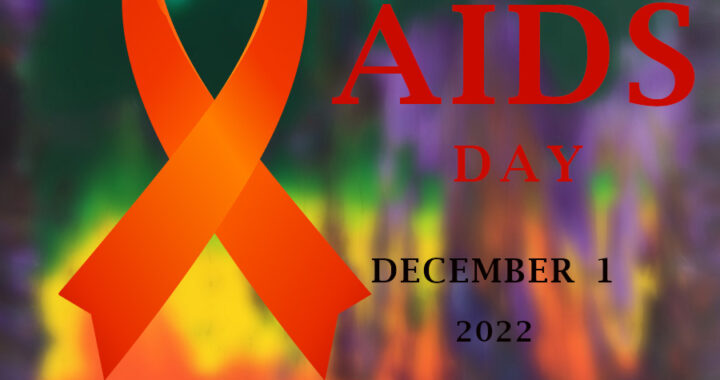Today we remember and honour those who died from AIDS.
I would also like to share some of my memories and thoughts about AIDS in general and how it relates to inclusivity.
Pandemic
One of the most annoying sentences I‘ve heard in the last three years was: „COVID is the first pandemic I experience in my lifetime“. The swine flu of 2009 / 2010 was classified as a pandemic, but of course, AIDS is an ongoing pandemic since the early 1980ies.
Sometimes in the mid 80ies, I was told in school that using condoms is absolutely essential. But AIDS seemed to be incredibly far away.
I came out in 1993, and suddenly AIDS was very close. In 1994, I learned for the first time that people I knew were HIV-positive. On of them was Michael, an ex of my partner at that time Peter.
His condition worsened, and in 1996 his mother nursed him again. A decade earlier, she had accused Peter of „turning her son gay“. Fortunately, the therapist to which she had dragged her son to, explained to her that she was the person with a problem, not her son.
While the news started to fill with stories of miraculous healings of AIDS-patients thanks to the new medication, Michael‘s mother called Peter because she needed help. Michael had fallen out of his bed and she couldn‘t get him back in again. So we drove to his flat, lifted him back into his bed again and left. I knew at that moment that I would not forget this situation for the rest of my life. Michael was skinny to his bones and almost unable to move his limbs.
A few weeks later, Michael‘s mother called Peter again, to tell him that Michael has died and that the funeral had already happened.
Science improved and the medication available in 1996 lead to longer and healthier lives for those living with HIV. In 2019 I had a conversation with a doctor, who had specialized in the treatment of HIV for more than 20 years. He told me that now I was at a higher risk of catching HIV having safe sex with a person who had just tested negative than having unsafe sex with a person who is HIV+. As long as this person has no detectable viral load and is taking their medication properly. I actually knew this fact for few years then, that undetectable means untransmittable, abbreviated U = U. But I needed this talk to realize certainties I had learnt in school and stuck to them since then had become outdated by scientific progress.
The impact of AIDS
Only in recent years I understood that AIDS also had a much wider impact on my life. When I came out, the only publicly visible gay men were some flamboyant fairies on the TV screen with whom I couldn‘t self-identify. I didn‘t realize for decades that it has not always been this way. After the sexual revolution in the 60s, by the end of the 70s homosexuality had become much more visible and in parts more publicly accepted.
But those people who could have been my role models had either died from AIDS or have been driven into hiding. Because AIDS also made the still existing abysses of homophobia visible, including suggestions from high-profile politicians to intern HIV-positive people. Which led to many people avoiding the test: There was no cure available anyway, and a documented positive test result was seen as a further danger to personal freedom.
When my mother had overcome her first shock of me telling her that I am gay, she said: „Well, you are not the only one in the world.“ To which I replied: „I know. But I felt like I was for a long time.“ It was not unusual at that time that I had to ring a bell to get into a gay bar. My first partner completely refused personal displays of affection in public.
Even in 2005, a well-meaning colleague recommended me not to come out in the company because she had seen trouble from that earlier on in her work life. „Don‘t ask, don‘t tell“ was quite an unspoken social convention in that time. Probably denied by many if they had been asked about it directly, but their actions were according so this convention. Society has moved on a bit. For example, marriage equality is common at least in parts of the world.
What did we learn from AIDS?
Still, the outbreak of COVID demonstrated how little society had actually evolved. Science has learned so much about how to fight pandemics, so little of that knowledge came to use. For example, we need to test a lot but also make sure that people are better off with a positive test result than with the uncertainty of not knowing their status. Instead I had to witness outbreaks of anti-Chinese or generally anti-Asian racism which simply shocked me.
What do we learn in terms of inclusivity from this?
Too much in detail to elaborate: In general, be willing to rethink and relearn things we have assumed as certainties for decades. And above all: Let‘s get rid of the stigma. We only solve our problems by tackling them together, not by excluding those who are affected worst.
Jens

